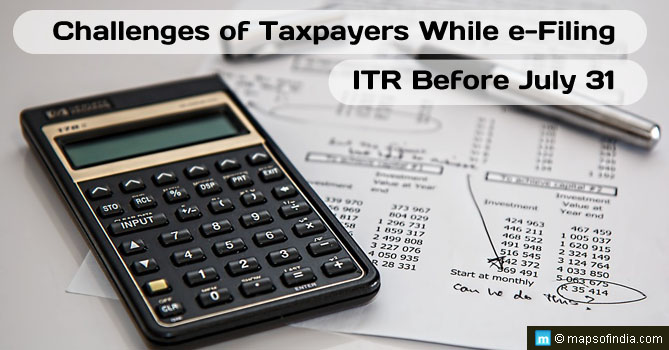The Income Tax Act of 1961 and Income Tax Rules of 1962 require citizens of India to compulsorily file their return with the Income Tax Department of India.
Challenges of Taxpayers While e-Filing ITR Before July 31 Problems and Prospects of e-filing of Income Tax Return

